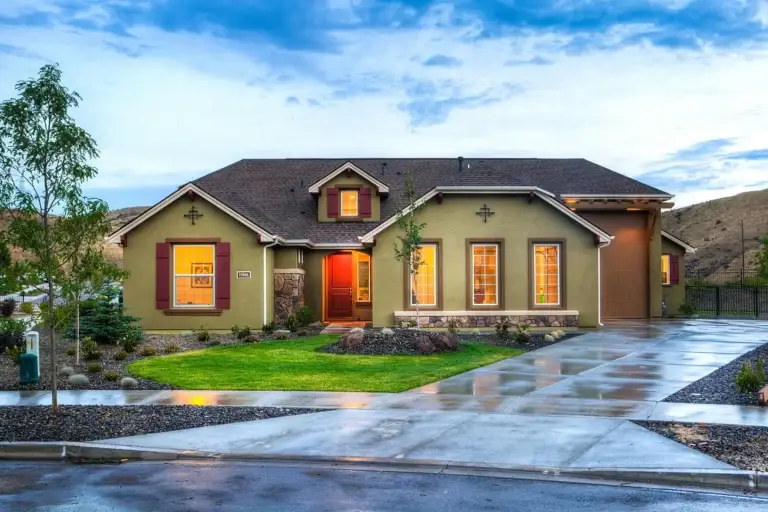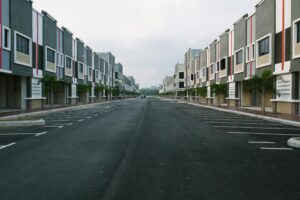Introduction
Purchasing a fixer-upper home is an option many prospective buyers consider, especially in competitive real estate markets where fully renovated properties are expensive or hard to come by. A fixer-upper refers to a home that needs significant renovations or repairs, often offered at a lower price than move-in-ready homes. While these properties can provide opportunities for customization and potential financial rewards, they also come with challenges that may not be suitable for everyone.
In this article, we’ll explore the pros and cons of buying a fixer-upper in today’s housing market, helping you decide if this is the right path for your homeownership journey.
Pros of Buying a Fixer-Upper
Lower Purchase Price
One of the biggest draws of buying a fixer-upper is the lower upfront cost. Homes that need repairs are often priced below market value, allowing buyers to enter neighborhoods or housing markets that would otherwise be unaffordable. In areas with high demand or limited inventory, a fixer-upper can provide a way to buy property in a desirable location without breaking the bank.
Potential for Equity Growth
Fixer-uppers offer the opportunity to build equity quickly. By purchasing a home at a discounted price and making improvements, you can significantly increase the property’s value. If you make smart renovations, the home could be worth far more than your total investment (purchase price plus renovation costs). This potential for financial gain is a major incentive for those looking to flip homes or sell for profit down the line.
Customization and Personalization
With a fixer-upper, you have a blank canvas to create the home of your dreams. You can choose the layout, finishes, and design features to suit your taste and lifestyle. This level of personalization is often not possible with a move-in-ready home, where you may have to settle for someone else’s design choices.
Less Competition in the Market
In a competitive housing market, move-in-ready homes can spark bidding wars, driving up prices. Fixer-uppers, on the other hand, often attract fewer buyers because of the work involved. This reduced competition can give you an advantage when negotiating the purchase price or terms of the sale.
Access to Renovation Loans
Several loan programs, such as the FHA 203(k) loan and the Fannie Mae HomeStyle Renovation loan, are designed specifically for buyers looking to purchase fixer-uppers. These loans allow you to borrow money for both the purchase of the home and the renovation costs, making it easier to finance your project without needing to take out separate loans.
Cons of Buying a Fixer-Upper
Unexpected Costs and Budget Overruns
One of the biggest risks with fixer-uppers is the potential for unexpected expenses. Renovation projects frequently go over budget due to unforeseen problems like structural issues, outdated plumbing, or hidden water damage. Even with a thorough inspection, some problems may not become apparent until after work begins, leading to higher costs than anticipated. For buyers with tight budgets, these overruns can be financially devastating.
Time-Consuming Renovations
Renovating a fixer-upper takes time—sometimes months or even years, depending on the scope of the project. If you’re planning to live in the home while renovations are underway, this can be stressful and inconvenient. Delays caused by contractor availability, permitting, or supply chain issues are common, and the longer the renovation drags on, the more disruptive it can be to your daily life.
Requires Extensive Knowledge or Expertise
Successfully renovating a fixer-upper requires either a certain level of expertise or access to reliable professionals. If you’re not skilled in home repairs, you’ll need to hire contractors for much of the work, which can be expensive and difficult to manage. DIY renovations may save money, but they come with risks if you’re not experienced in areas like plumbing, electrical work, or structural repairs.
Financing Challenges
While there are renovation-specific loan programs available, financing a fixer-upper can still be more complicated than buying a move-in-ready home. Lenders may be more cautious about lending for homes in poor condition, especially if the property has major issues. Additionally, renovation loans often have stricter requirements or higher interest rates, and not all buyers may qualify.
Market Uncertainty
While there’s potential for significant profit when you renovate a fixer-upper, there’s also a risk that the market won’t support your projected increase in value. If the local real estate market declines, or if your renovations exceed what’s typical for the neighborhood, you may not see a return on your investment. This is especially true in volatile markets where property values fluctuate quickly.
Is a Fixer-Upper Right for You?
Whether or not a fixer-upper is the right choice depends on your financial situation, experience with renovations, and long-term goals. For buyers who enjoy home improvement projects, have a clear vision for the property, and are willing to invest time and effort, a fixer-upper can be a rewarding investment. However, if you’re looking for a turnkey home with minimal hassle, or if you have limited time and budget for unexpected repairs, a fixer-upper may not be the best fit.
Conclusion
Buying a fixer-upper can offer a path to homeownership in competitive or expensive markets, with the potential for financial rewards and the satisfaction of customizing your own space. However, it’s important to weigh the potential benefits against the risks, such as unexpected costs and the time commitment required for renovations. By carefully assessing your budget, skills, and goals, you can make an informed decision about whether a fixer-upper is the right choice for you.
For those ready to take on the challenge, working with an experienced real estate agent, contractor, and lender can help ensure a successful renovation project and, ultimately, a home that’s both beautiful and valuable.





